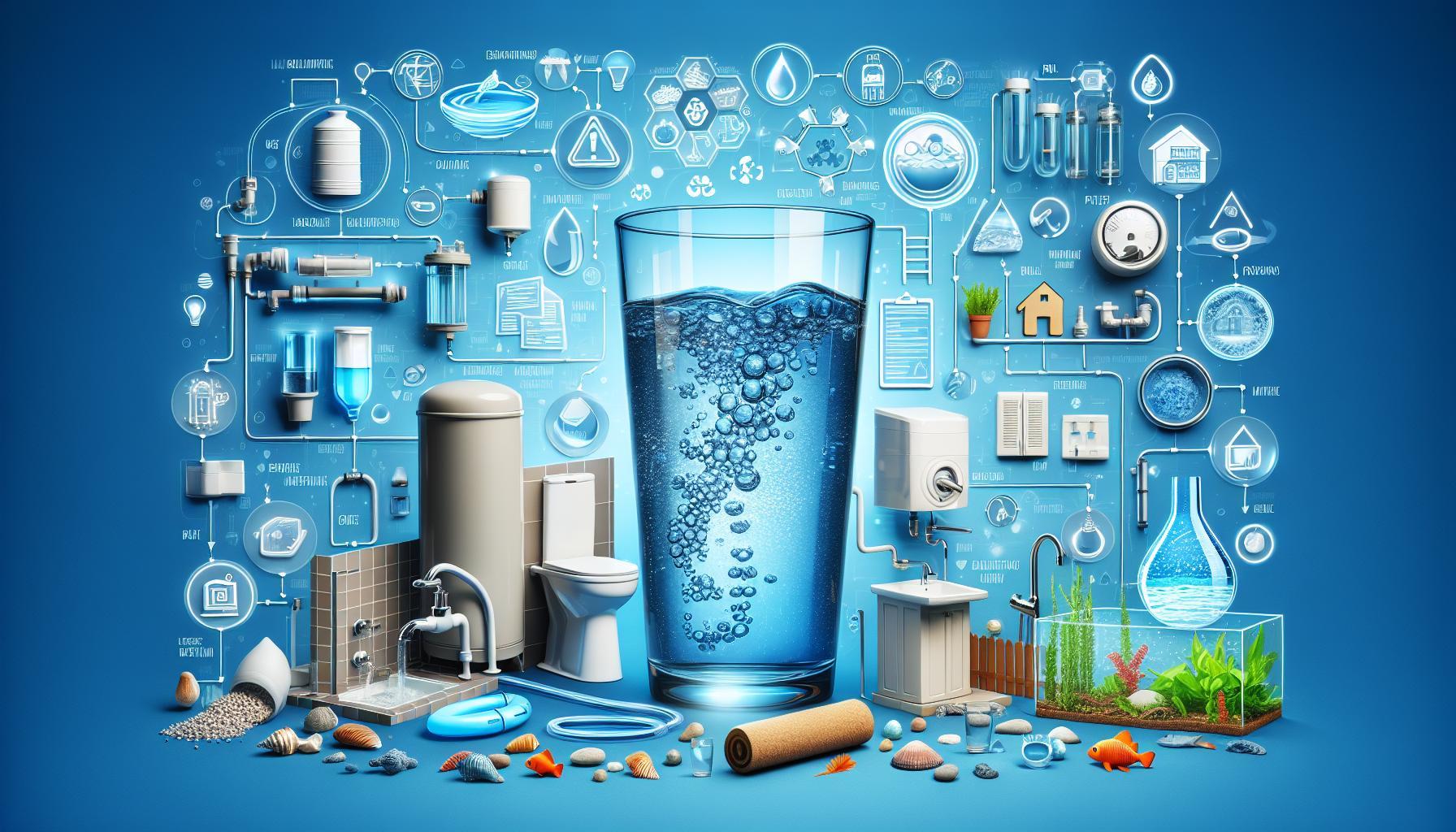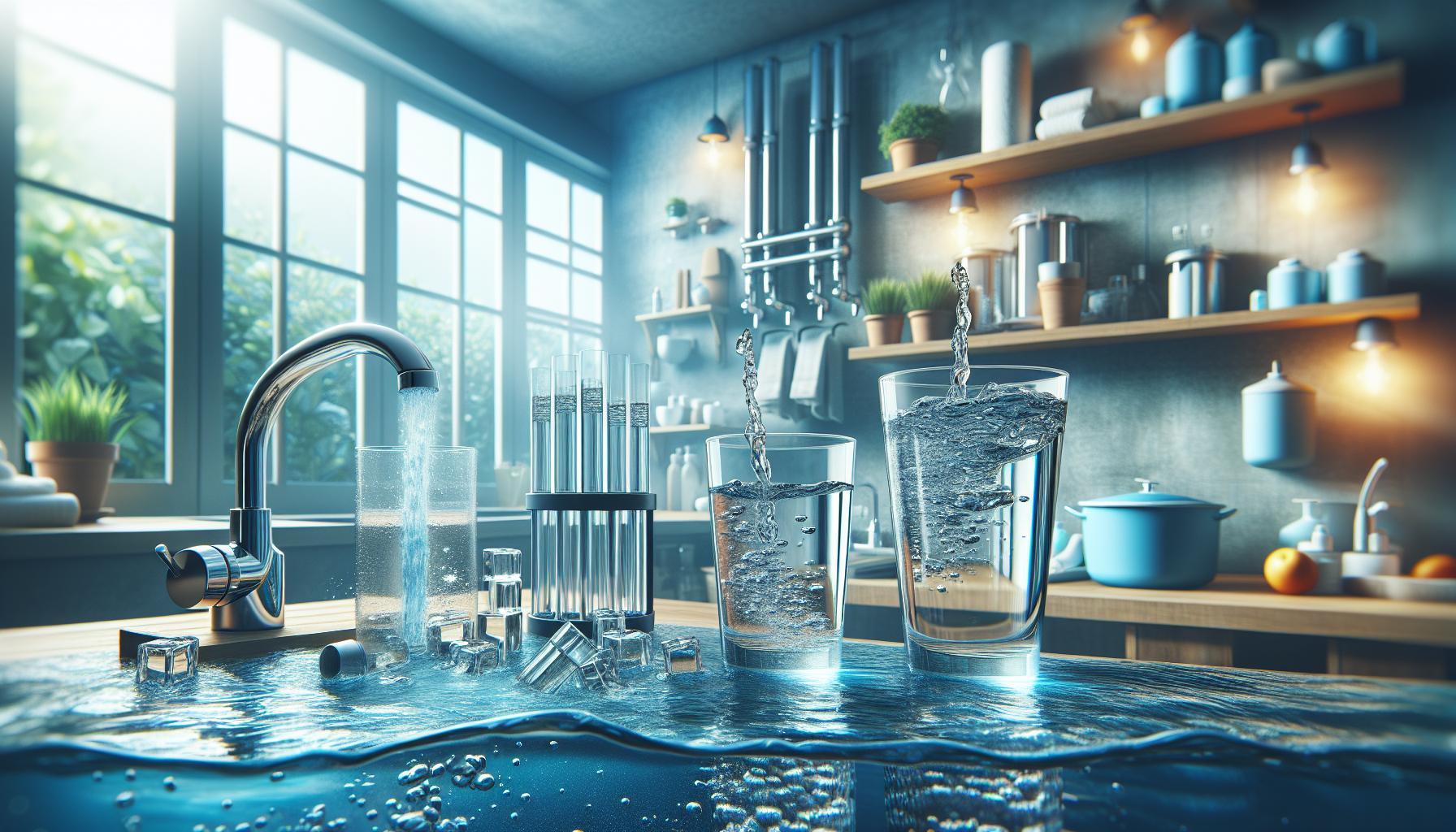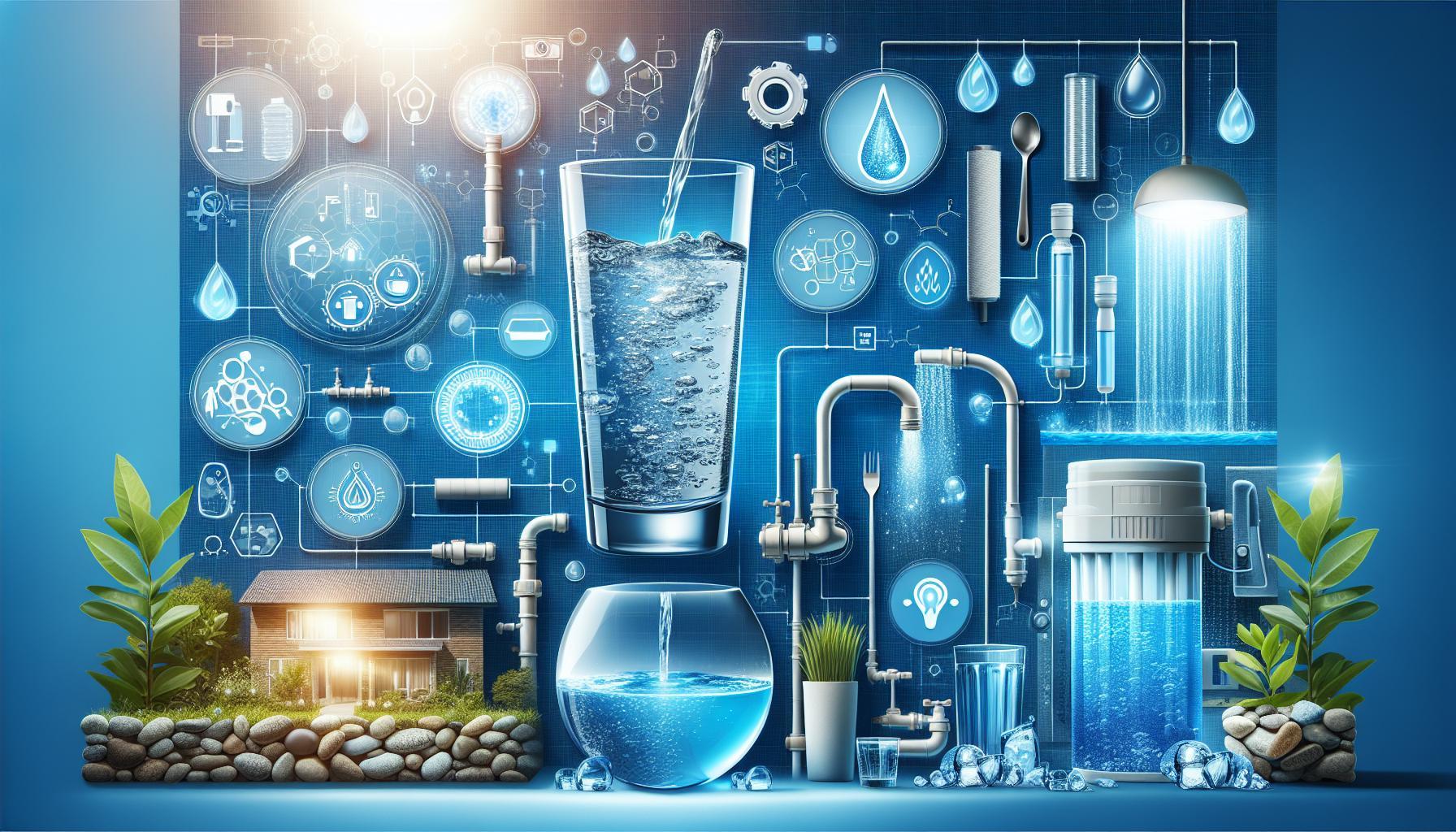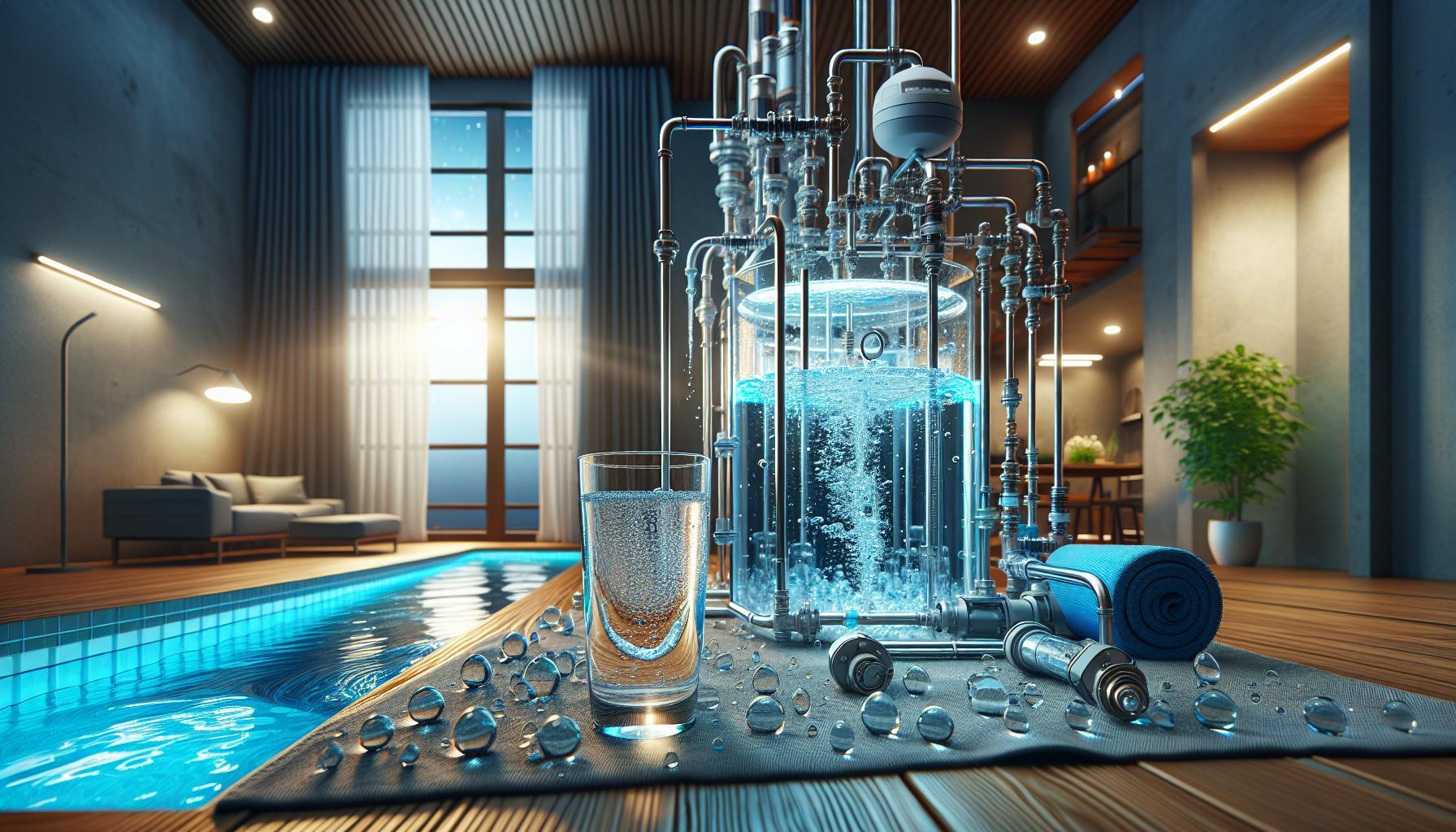When your old water heater reaches the end of its life, deciding how to dispose of it can be daunting. Improper disposal not only poses environmental risks but may also violate local regulations. Discovering eco-friendly and legal methods for disposing of your water heater is essential for responsible home maintenance, allowing you to recycle valuable materials while minimizing waste.
Understanding the Importance of Proper Water Heater Disposal
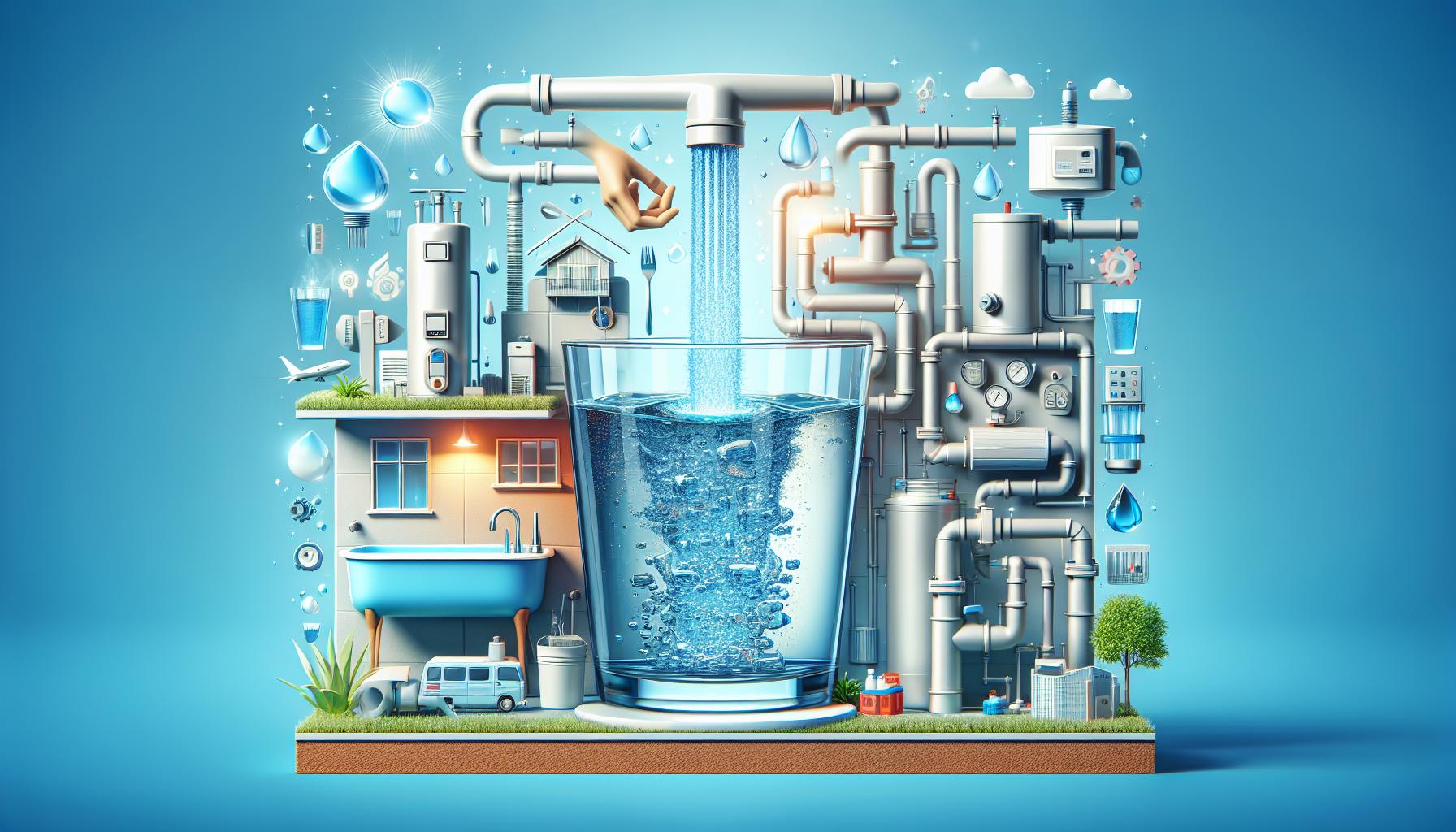
Proper disposal of water heaters is crucial for environmental protection and public safety. These appliances often contain hazardous materials, such as heavy metals, which can leach into the groundwater if discarded irresponsibly. By understanding how to dispose of a water heater in eco-friendly and legal ways, homeowners can significantly reduce their environmental footprint and contribute to a cleaner planet.
When considering disposal options, it’s important to explore several eco-friendly methods:
- Recycling: Many components of water heaters, including metals and plastics, can be recycled. Contact local recycling centers to see if they accept water heaters, as some, like the Los Reales Sustainability Campus, provide specific services for this purpose ([3]).
- Manufacturer Take-Back Programs: Some manufacturers offer take-back programs, where they ensure the proper disposal and recycling of old units. Always check with your brand for available options.
- Municipal Waste Services: Many municipalities have guidelines and services for large appliance disposal. Before disposal, inquire if hazardous charges, like refrigerant evacuation fees, apply.
- Donation: If the water heater is still functional, consider donating it to charities or local organizations that can repurpose it.
Engaging in proper disposal practices not only safeguards the environment but also aligns with legal requirements set by local governments regarding hazardous waste management. By following legal protocols as described in resources, one not only meets compliance standards but fosters community health and safety, ensuring that potentially toxic materials are handled appropriately and do not enter landfills irresponsibly.
It’s not just about disposing of a piece of equipment; it’s about making conscious choices that benefit our communities and ecosystems. By adopting eco-friendly disposal practices, individuals set a precedent that demonstrates responsibility and environmental stewardship, encouraging others to follow suit. Always remember, the responsible disposal of appliances contributes to a sustainable future for all.
Eco-Friendly Ways to Dispose of Your Old Water Heater
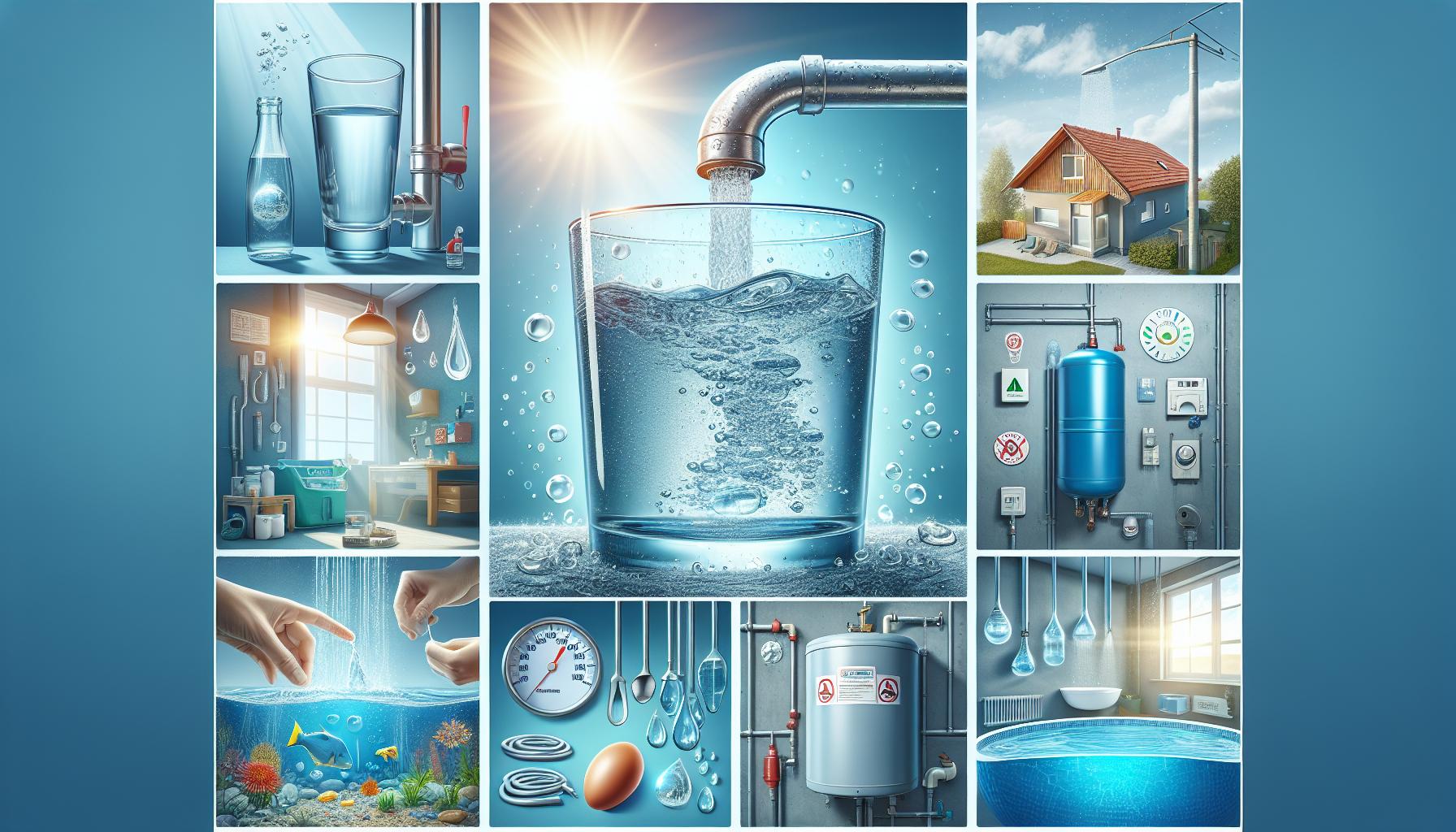
When it’s time to replace your old water heater, it can feel daunting to think about what to do with the unit you’re removing. With an average lifespan of 10 to 15 years, many homeowners will face this recycling or disposal challenge. Instead of simply tossing your old unit into a landfill, you have several eco-friendly options that can minimize environmental impact while ensuring legality.
Recycling the Old Unit
One of the best eco-friendly solutions is to recycle your old water heater. Most water heaters are made primarily of metal, which can be repurposed effectively. Here are a few steps to consider:
- Contact Local Scrap Yards: Many scrap yards accept old water heaters. Call ahead to inquire about their policies, as some may offer a small fee for the metals.
- Check with Local Recycling Centers: Facilities often have specific programs for recycling appliances. Look into the details of how to transport your old heater safely.
- Investigate Manufacturer Programs: Some manufacturers have take-back programs, allowing you to return your old unit for recycling or refurbishing purposes.
Donation Options
If your water heater is still functional, consider donating it to organizations that can utilize such resources. Many non-profit groups or local community centers are often in need of equipment to provide housing or shelters. Here’s how to handle it:
- Check Local Charities: Organizations such as Habitat for Humanity sometimes accept donations of working appliances.
- Utilize Online Marketplaces: Platforms like Freecycle or Facebook Marketplace can help you find interested individuals willing to pick up your used water heater.
Using Professional Disposal Services
Hiring a professional junk removal service can be an excellent option if you’re looking for convenience while ensuring eco-friendliness. Many of these companies practice responsible disposal methods. When selecting a service, search for those committed to recycling or donating materials. Here are some actionable steps to take:
- Research Companies: Look for services with good reviews that prioritize eco-friendly practices.
- Request Certifications: Make sure they follow local regulations for hazardous waste disposal if the heater has any harmful elements.
Prepare Your Water Heater for Disposal
Before you lay your unit to rest, take a moment to prep it properly, which can also ease its recycling process:
- Drain the Heater: Completely drain the water from your heater to avoid leakage during transport.
- Disconnect Properly: Ensure all connections are safely removed and that the heater is not left with any electrical components that could pose risks.
By utilizing these eco-friendly methods for removing your old water heater, you’re not only adhering to legal obligations but also contributing positively to environmental sustainability in your community. Remember, responsible disposal reflects a commitment to a greener future while ensuring compliance with relevant regulations related to the disposal of such appliances.
Navigating Local Regulations for Water Heater Disposal
To effectively dispose of a water heater, understanding local regulations is essential, as these can significantly vary from one jurisdiction to another. Failure to comply with local laws can lead to legal complications and fines, which is why it’s important to inform yourself about the specific guidelines in your area. Additionally, proper disposal not only contributes to environmental sustainability but also ensures safety within your community.
Research Local Disposal Regulations
Before proceeding with your water heater disposal, consider taking the following steps:
- Contact Local Authorities: Reach out to your city or county’s waste management department to inquire about the legal procedures for disposing of bulky appliances like water heaters.
- Review Your State Regulations: Many states have specific environmental regulations governing the disposal of hazardous waste, which can include components of old water heaters.
- Check for Recalls: In some cases, older models may have specific recall notices or disposal requirements, so verify if your unit is affected.
Utilize Authorized Disposal Facilities
Most municipalities provide designated facilities or programs for disposing of appliances. Utilizing these resources not only ensures compliance but also often facilitates eco-friendly recycling processes. Here are some options to consider:
| Option | Description | Notes |
|---|---|---|
| Drop-off Centers | Local centers where you can bring your old water heater for recycling. | Often free or low-cost; verify operational hours. |
| Scheduled Pickup | Some waste management services offer scheduled pickups for large appliances. | May require advance notice; typically no additional fees. |
| Specialty Recyclers | Companies dedicated to recycling appliances and metals safely. | Ensure they are certified to handle hazardous components. |
Know What You Can and Cannot Dispose
Understanding what materials from your water heater can be recycled or reused is equally important. Many parts can contribute to waste reduction and are often subject to special regulations.
- Metal Components: Typically, the metal casing of the water heater can be recycled, but check local rules for recycling centers that accept it.
- Insulation and Wiring: These materials may also need to be disposed of in accordance with specific guidelines, as they can contain hazardous materials.
- Fluids: If your water heater has any remaining water or other fluids, consult with local laws regarding their safe disposal.
Navigating the local regulations for water heater disposal is a crucial step towards ensuring that your actions are both legal and eco-friendly. By following these guidelines, you can confidently dispose of your old appliance while making a positive impact on your community and the environment.
Step-by-Step Guide to Preparing Your Water Heater for Disposal
Preparing a water heater for disposal requires careful attention to safety and environmental considerations. Improper disposal can lead to negative impacts on health and the environment, making it crucial to follow the appropriate steps. The process ensures that your old appliance is handled safely and responsibly, contributing to eco-friendly waste management practices.
Assess the Condition of Your Water Heater
Before taking action, evaluate whether your water heater is still functional. If it’s in working condition, consider options like donating it or selling it online. However, if it’s broken or too old, proceed with the following steps for safe disposal.
Safety First: Disconnecting the Water Heater
Disconnecting your water heater should be done with care:
- Turn Off the Power: If it’s an electric heater, switch off the power at the circuit breaker. For gas heaters, turn off the gas supply.
- Shut Off Water Supply: Locate the shut-off valve on the water supply line and turn it off.
- Drain the Heater: Attach a hose to the drain valve and direct it to a floor drain or outside. Open the valve to let the water flow out completely.
Preparing for Transportation
Once the water heater is disconnected and drained, it’s time to prepare it for removal:
- Cap Openlines: Ensure that open water lines are capped to prevent leaks.
- Remove Additional Components: If applicable, detach any additional parts like the thermostat or heating elements that might be removed easily.
Disposal Options
After preparing your water heater, identify the best disposal method. Here are some eco-friendly and legal options:
| Disposal Method | Description |
|---|---|
| Recycling | Contact local scrap metal yards or recycling centers that accept water heaters. |
| Community Collection Events | Check if your community holds collection events for bulky waste. |
| Professional Junk Removal Services | Hire a service to ensure safe and responsible disposal. |
By following these steps, you can ensure that your old water heater is disposed of in a manner that aligns with eco-friendly practices while also adhering to legal requirements. Making informed choices during this process not only aids in environmental conservation but also promotes community health and safety.
Creative Upcycling Ideas for Old Water Heaters
Did you know that old water heaters can be transformed into unique and functional pieces for your home or garden, rather than being an environmental burden? The metal and insulation of these appliances can offer a treasure trove of materials ripe for creative upcycling. By embracing innovative ideas, you can leave behind a smaller carbon footprint while also giving your old water heater a new lease on life. Here are some imaginative ways to repurpose that aging appliance, ensuring that you dispose of your water heater in an eco-friendly and legal manner.
Garden Planters
Old water heaters can easily be converted into striking garden planters. With their robust metal structure, they provide a perfect balance of durability and aesthetic appeal. Here’s how you can transform your water heater into a centerpiece for your garden:
- Preparation: Remove the insulation and any internal components. Scrub the interior and exterior thoroughly to eliminate residue.
- Drainage: Drill holes in the bottom to ensure good drainage, preventing root rot.
- Soil and Planting: Fill with potting soil and plant your favorite flowers, herbs, or even small shrubs for a rustic look.
Fire Pit
Another fantastic idea is to convert your old water heater into a cozy fire pit. This project not only creates a fun outdoor gathering spot but also repurposes materials that would otherwise end up in a landfill.
- Safety First: Before starting, cut the top off the water heater with a reciprocating saw and make sure to smooth out any sharp edges.
- Base Setup: Place the heater on a stable surface, remove any protective coating, and paint the exterior with heat-resistant paint for added durability.
- Add Fire Elements: Insert fire-safe stones at the bottom and arrange firewood or charcoal for a perfect evening ambiance.
Storage Solutions
Get creative by using an old water heater as a storage solution in your garage or basement. With a bit of modification, it can serve as a chic way to organize tools, gardening supplies, or even outdoor sports equipment.
- Modify the Structure: Cut the water heater in half and clean out the insides. You can paint or decorate the exterior to match your storage space.
- Shelving: Install a wooden shelf inside for additional organization, ideal for holding smaller items.
| Repurposing Idea | Materials Needed | Skills Required |
|---|---|---|
| Garden Planters | Soil, plants, tools | Basic gardening |
| Fire Pit | Heat-resistant paint, stones, firewood | Basic DIY |
| Storage Solutions | Paint, wood for shelving | Basic carpentry |
By embracing these creative upcycling ideas, you actively engage in the eco-friendly and legal options for disposing of a water heater that has outlived its original purpose. Each project not only enhances your surroundings but also showcases your commitment to sustainability.
How to Identify and Separate Recyclable Components
Understanding how to properly identify and separate the recyclable components of a water heater not only contributes to an eco-friendly disposal process but also promotes sustainability by reducing landfill waste. Water heaters typically consist of various materials, each with its unique recycling requirements and processes. With the right knowledge, you can ensure that you are disposing of each part correctly, contributing to a greener planet.
Identifying Recyclable Materials
Several components of a water heater can be recycled, making it essential to familiarize yourself with these materials. Often, a standard water heater will include:
- Metal Casing: Usually made of steel or aluminum, metal casings are recyclable and fetch a good value at scrap yards.
- Insulation: This may be made from fiberglass or foam, and while some types can be recycled, others require special handling.
- Tank: The tank itself is often made of steel, and it can usually be recycled, too, though some treatment may be necessary to prevent rust.
- Piping: Copper and plastic pipes are also present, both of which can often be recycled through appropriate channels.
- Electrical Components: Wiring and electronic parts may contain materials like copper which are highly recyclable.
Separate the Parts for Recycling
To maximize your recycling efforts when disposing of a water heater, it’s crucial to separate its components diligently. Follow these practical steps to make the process straightforward:
- Disassemble the Unit: If you are comfortable doing so, carefully take apart the water heater to expose its individual components.
- Sort Metals from Non-Metals: Place metal pieces like the tank and casing in one pile, and insulation or electrical parts in another.
- Handle Hazardous Materials: If any anti-corrosion materials or specific insulation types are included, ensure you adhere to your local guidelines for hazardous waste disposal.
- Consult Local Recycling Centers: Check with your local recycling facilities to discover what items they accept and if they need any special treatment.
Consider Local Regulations and Resources
Understanding local regulations can save time and effort in your recycling journey. It may be helpful to explore local resources and guidelines regarding the disposal of water heaters:
| Component | Recycling Guidelines | Local Facility Resource |
|---|---|---|
| Metal Parts | Clean and separate before recycling. | Metal recyclers or scrap yards. |
| Insulation | Check for specific handling instructions. | Hazardous waste recycling centers. |
| Piping | Separate copper from PVC for best results. | Local plumbing supply stores for drop-off. |
| Electrical Components | Check local e-waste recycling options. | Dedicated electronic recycling centers. |
By knowing how to identify and properly recycle the components of a water heater, you not only contribute to a more sustainable environment but also potentially benefit from recycling programs. Following local rules and utilizing available resources can make your disposal process both eco-friendly and legal, paving the way for a cleaner future.
Working with Professionals: Finding the Right Disposal Service
Finding the right disposal service for your old water heater can feel overwhelming, especially when the stakes involve both environmental responsibility and legal compliance. Not all disposal services operate with the same standards, which can significantly impact how your unwanted appliance is managed. In this context, it’s crucial to work with professionals who prioritize eco-friendly practices, ensuring that materials are recycled appropriately and hazardous components are handled with care.
Assessing Your Options
When looking for a disposal service, start by evaluating the options available in your area. Many local waste management companies offer specialized services for large appliances. Consider asking these questions to help narrow your choices:
- Do they have proper licensing? Ensure the company is certified to handle hazardous waste and complies with local regulations.
- What’s their recycling process? Inquire about how they plan to handle your water heater. A reputable service should provide clear, transparent information on their disposal methods.
- Are they insured? This protects you in the event of accidents during the pick-up process.
Cost Considerations
When assessing disposal services, it is also essential to look at pricing structures. Many companies will offer free pick-up for water heaters if you purchase a replacement from them, while others may charge a fee. Understanding the cost can help you make an informed decision. Below is a basic breakdown of potential costs:
| Service Type | Estimated Cost |
|---|---|
| Local Waste Management | $20 – $60 |
| Specialized Appliance Recyclers | $50 – $100 |
| Retailer Pickup (with purchase) | Free |
Check Reviews and References
Before committing, don’t hesitate to check online reviews or ask for recommendations from friends and family. Websites like Yelp or Angie’s List can provide insights into other customers’ experiences. Additionally, look for any local or state certifications that speak to the service’s green practices, which can add a layer of trust. This diligence can help ensure you choose a disposal service that aligns with your values, especially when it comes to eco-friendly and legal options for disposing of your water heater.
Common Mistakes to Avoid When Disposing of a Water Heater
Disposing of a water heater can be a straightforward task, but many homeowners make critical errors that complicate the process or lead to legal troubles. Understanding these common missteps can save you time, money, and ensure that you follow eco-friendly practices. One frequent mistake is neglecting to check local regulations regarding appliance disposal. Each municipality has specific rules governing how to dispose of larger appliances, and failing to adhere to these can result in fines or improper disposal that harms the environment.
Another common error is underestimating the importance of recycling. Many people assume that simply discarding their old unit in a landfill is acceptable. In reality, water heaters often contain valuable materials that can be recycled or repurposed. To avoid this pitfall, consider contacting local recycling centers or community collection events, many of which accept appliances. Some providers even have take-back programs specifically for items like water heaters, making it easier to responsibly retire your unit [[1]].
When planning the disposal, failing to disconnect the unit safely is a significant oversight. Water heaters are heavy and contain hazardous materials, requiring careful handling to prevent injuries or damage. Always turn off electricity and water supply before attempting to move the heater. If you’re unsure, consider hiring a professional junk removal service that specializes in appliance extraction; not only will this ensure safety, but these services often provide recycling options as well [[2]].
Lastly, overlooking the potential for donations or sales can be a missed opportunity. If your water heater is still functional, local charities or community organizations might appreciate the donation. Alternatively, posting on online marketplaces can allow you to sell or give away your used heater to someone in need, thus extending its life while adhering to eco-friendly practices. Always explore these options before resorting to disposal, as it aligns with both legal and environmental considerations.
Frequently Asked Questions
How to Dispose of Water Heater: Eco-Friendly and Legal Options?
To dispose of a water heater responsibly, contact a local recycling facility or your waste management service for guidelines on eco-friendly disposal options. These services often provide specific instructions to ensure legal compliance and environmental safety.
When you consider how to dispose of a water heater, it’s essential to look for eco-friendly solutions. Many waste facilities accept appliances like water heaters and will handle their disposal in a way that minimizes environmental impact. Research local laws as disposal regulations can vary by area.
What is the best way to recycle a water heater?
The best way to recycle a water heater is to take it to a local scrap metal yard or a recycling facility that accepts appliances. Most old water heaters contain reusable materials, making recycling a sustainable option.
Recycling not only reduces waste but also helps recover materials like steel and copper, which can be used in new products. Seek out businesses in your area that specifically mention appliance recycling or check with your municipality for recycling events.
Can I throw my old water heater in the dumpster?
No, you should not throw your old water heater in the dumpster without checking local regulations. Many places have strict guidelines on appliance disposal due to the hazardous substances they may contain.
Improper disposal can lead to fines and environmental harm. Instead, reach out to your local waste management authority for guidance on proper disposal techniques that comply with local laws. They often provide options like bulky item collection.
Why does it matter how I dispose of my water heater?
Disposing of your water heater responsibly is crucial for environmental protection and legal compliance. Improper disposal can release harmful substances into the environment and may lead to legal penalties.
Water heaters can contain materials that are difficult to break down and might pollute the ecosystem. By choosing eco-friendly disposal methods, you also contribute to the conservation of resources and promote sustainability. Check out our article on recycling guidelines for more insights.
What should I do before disposing of my water heater?
Before disposing of your water heater, disconnect it properly and drain any remaining water. This step is crucial for safety and efficiency during the disposal process.
Follow manufacturer guidelines or consult a professional if unsure how to disconnect the unit. Once drained and disconnected, you can take it to a recycling center or arrange for a pickup. Don’t forget to check local codes regarding disposal!
Can I donate my old water heater?
Yes, you can donate your old water heater if it’s still in working condition. Several charities and nonprofit organizations might accept appliances to help those in need.
Before donating, ensure that the unit meets safety standards and is functional. Local shelters, community organizations, or thrift stores may appreciate your donation, providing a valuable resource to those who cannot afford new appliances.
What happens to a water heater after it’s disposed of?
After disposal, water heaters are typically dismantled for parts or recycled. Metal components are often melted down and reused in new products, reducing waste.
This recycling process helps minimize the environmental impact of discarded appliances. In some cases, hazardous materials are safely processed to prevent pollution. Understanding where your water heater ends up can encourage eco-friendly disposal practices.
Where can I find local disposal options for my water heater?
To find local disposal options for your water heater, check your city’s waste management website or contact them directly. They usually provide up-to-date information on recycling programs and disposal guidelines.
You can also look for local recycling centers or scrap yards that accept appliances. Some retailers may offer take-back programs when you purchase a new water heater, providing you a convenient disposal solution.
In Retrospect
Disposing of a water heater doesn’t have to be a daunting task. By following eco-friendly and legal options, you can ensure that your outdated or malfunctioning unit is handled responsibly. From contacting local junk removal services that specialize in appliance disposal, such as those offering convenient options in Tucson [[2]](https://goloadup.com/tucson/water-heater-disposal/), to exploring recycling opportunities through dedicated services[[[3]](https://www.junk-king.com/services/residential-junk-removal-services/water-heater-disposal-recycling), you have multiple paths to a safe and efficient removal process.
Remember, proper disposal not only complies with local regulations but also contributes to environmental sustainability by reducing waste and recycling materials where possible. Stay proactive by engaging with local waste management facilities or services that prioritize eco-friendly practices [[1]](https://www.wmsolutions.com/locations/details/id/1124).
Feel empowered to take the next step in managing your water heater disposal! As you navigate this process, explore additional resources and professional services that can assist you, ensuring your actions benefit both your home and the planet.

